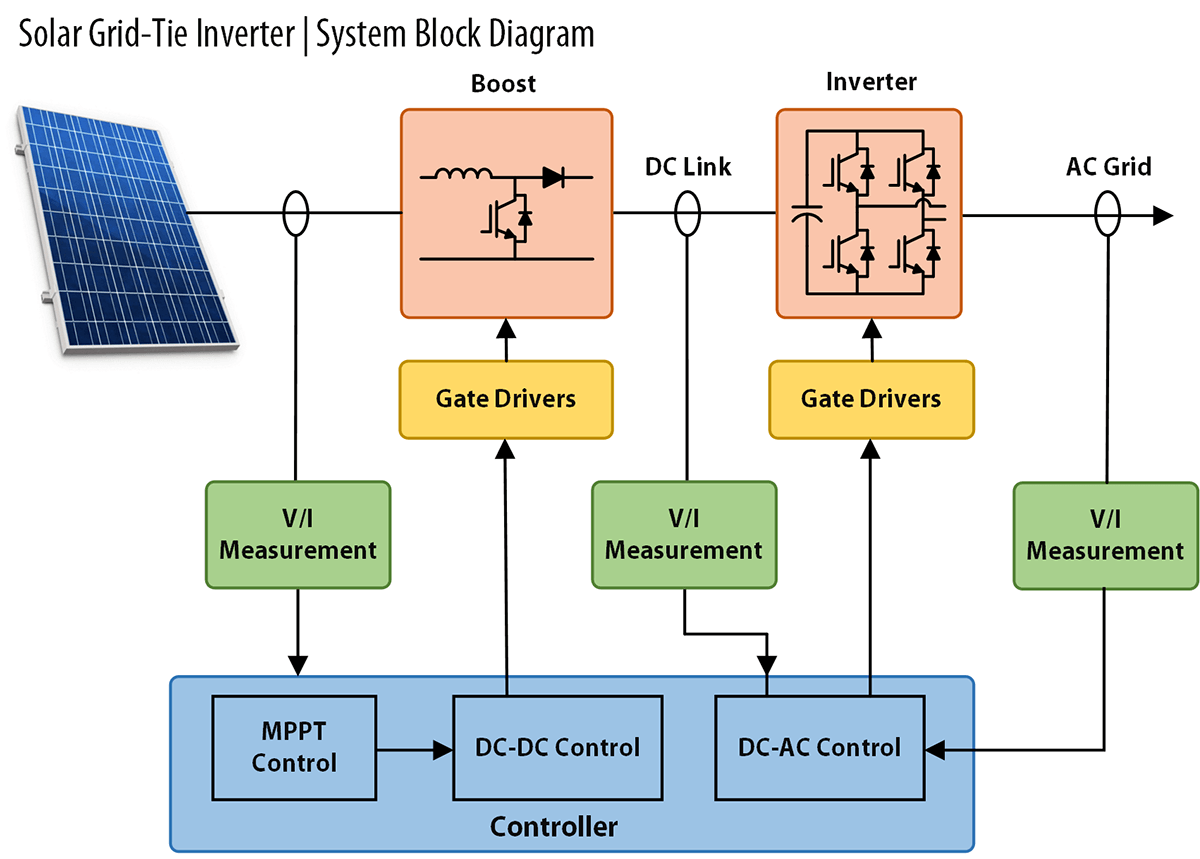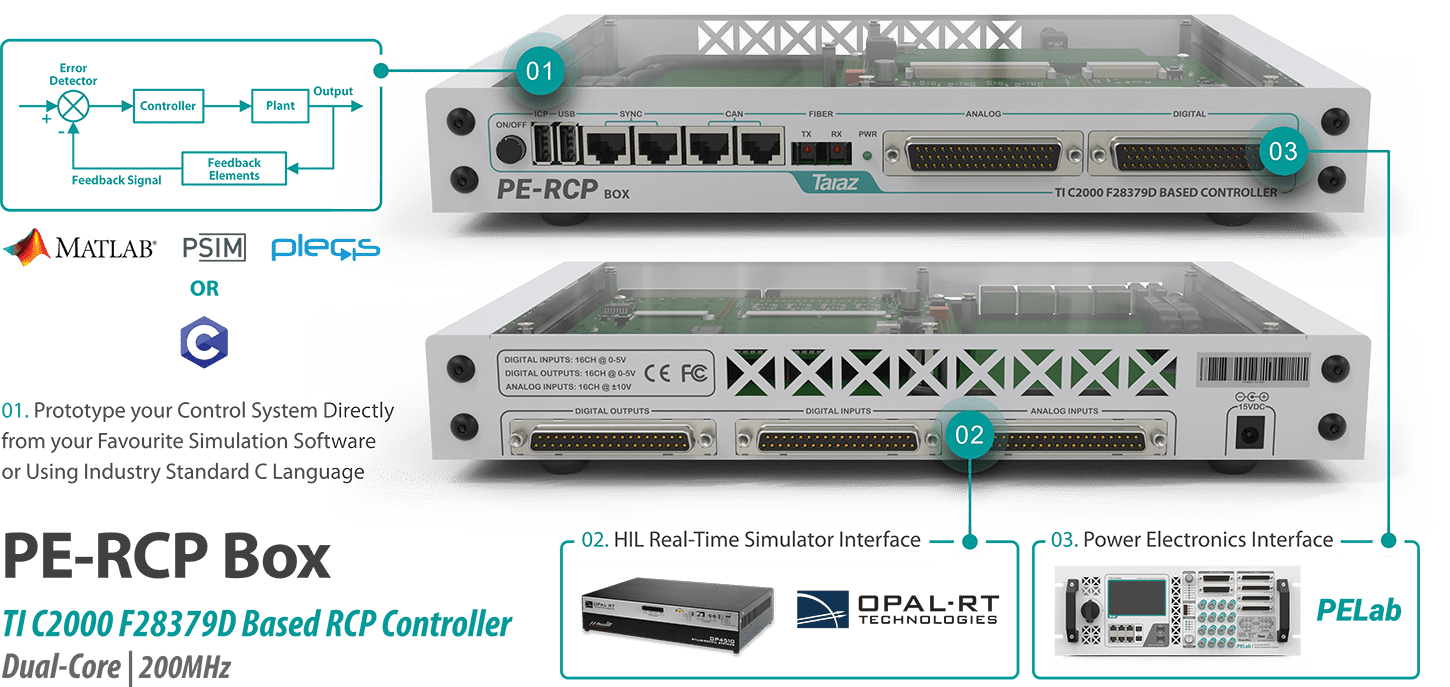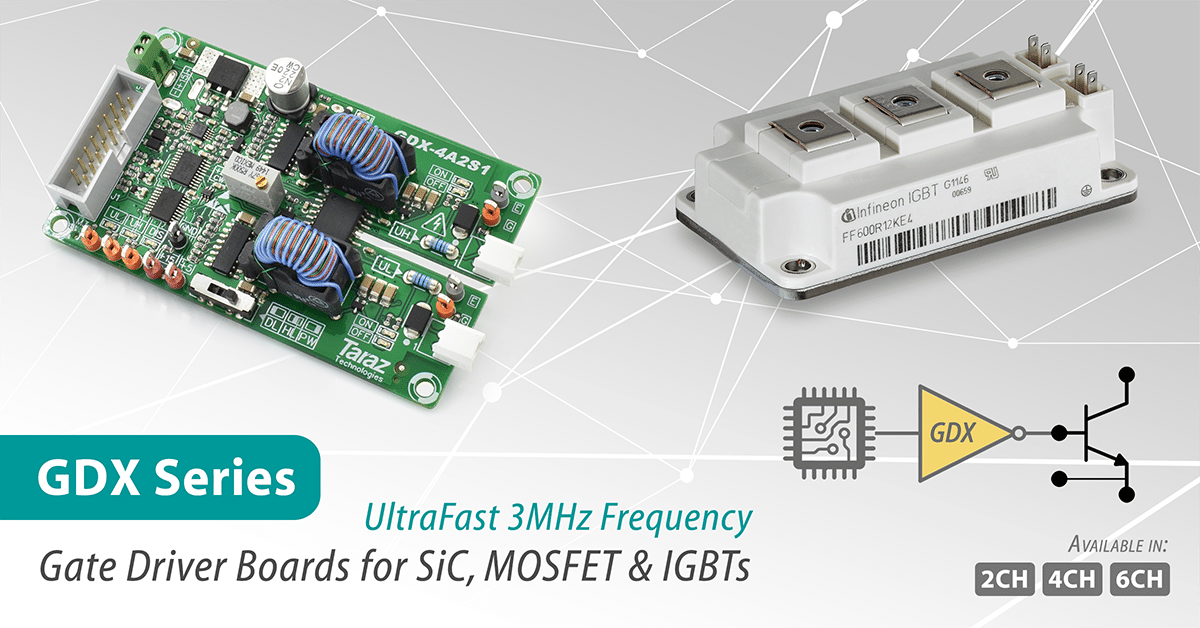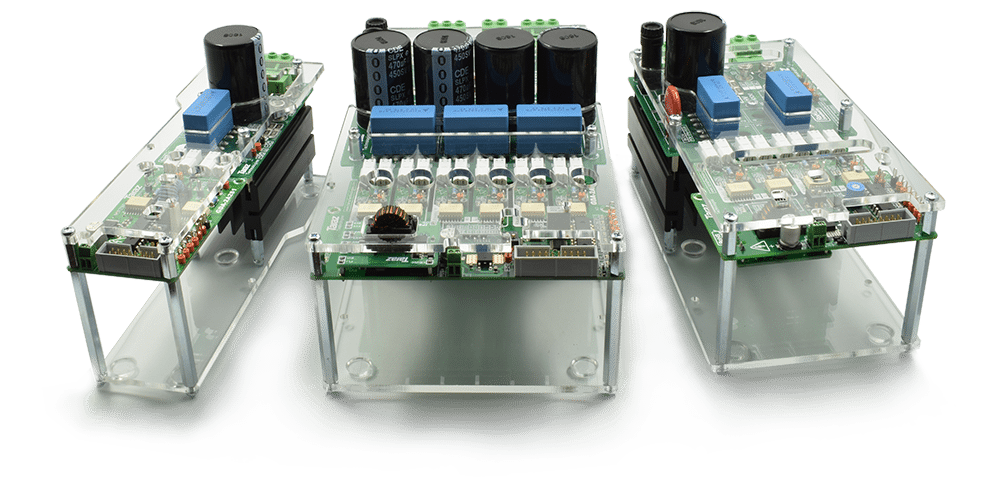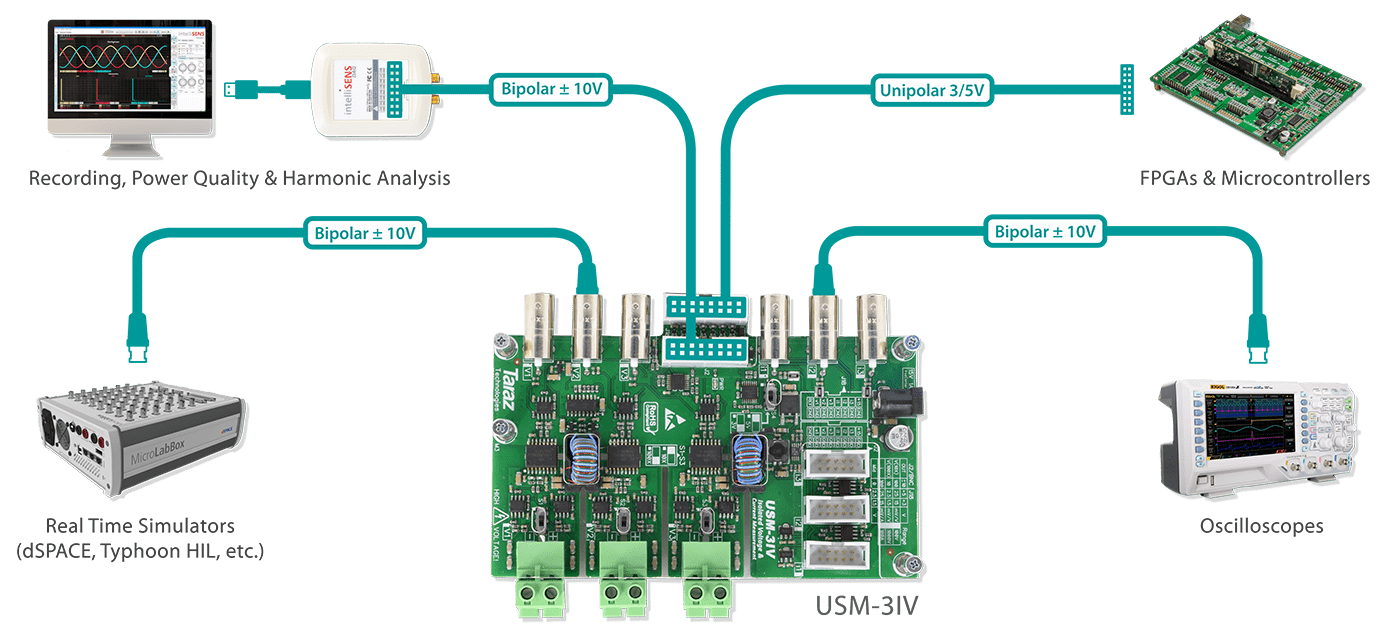Power Electronics Development Modules
Overview
Power electronics development modules are scalable modules that represent the basic building blocks of a power electronics system. Moreover, these blocks can be configured according to your application and can be assembled easily. Thus, making these modules suitable for rapid prototyping of any research related to power electronics and can assist you in product development and testing.
These Development boards are equipped with LEDs for visual feedback, testing points for monitoring the system, and configuration switches. Consequently, making them the best choice for any research and development environment, where, flexibility and reliability are the key requirements for you to focus on the results and progress with the research. Furthermore, these blocks can be assembled into training kits for educational purposes. Hence, these modules are fitting for power electronics research labs and universities.
Building Blocks
✓ Controllers & Interfaces: Embedded Hardware for Control System Implementation
✓ Gate Driver Boards: Isolate and Interface the Controllers to the Power Switches
✓ Converters and Inverters: Power Electronics Topologies such as the 3 Phase Inverter
✓ Measurement Modules: Isolated Voltage and Current Feedback Measurement
Controllers & Interfaces
Controllers are essential blocks in any power electronics system. The main function of a controller is to implement a high-performance control system and protect the system against any faults. Taraz Technologies controllers come in two form factors. The standalone controller option such as the PE-RCP Box and the controller modules option such as the PEController and PE-RCP (same as the PE-RCP Box in module form factor). The controller modules are panel mountable which makes them ideal for final product integration once the development is complete. In addition, to accelerate the development of embedded control systems, embedded C libraries for the PEController are also provided along with multiple application examples, which will save a lot of initial development time.
Gate Driver Boards
For IGBT, MOSFET & SiC Switches
Overview
Gate Driver Boards are complex blocks that interface power switches with the controller. In other words, their basic function is to provide isolation between high voltage circuit and low voltage controller. Furthermore, they also level shift drivers output to source/emitter ground in high side applications. In addition, each type of power switch requires different levels of output voltage and current and are exposed to application-specific risks such as high dv/dt and short circuit conditions.
Available Series
✓ GDC Carbide Series; SiC Gate Driver Boards with Advanced Protection
✓ GDA Advanced Series; IGBT Gate Driver Boards with Advanced Protection
✓ GDX Xtreme Series; Our Most Versatile High Speed Gate Driver Modules for SiC, MOSFET and IGBTs
Inverters & Converters
With Optional IGBT / SiC Power Switches
Overview
Power electronics inverters and converters perform the most important function in any power electronics system, that is, the power conversion. These converter kits are modular and scalable in nature. Hence, can be used for fast prototyping and validation of many popular converter topologies, including but not limited to, single & multi-phase inverters, Buck/Boost converters, single & multi-phase active rectifiers, and Modular Multilevel Converters (MMCs). These converter modules can cover a wide variety of applications, such as Variable Frequency Drives (VFDs), Photo Voltaic (PV) inverters, and Maximum Power Point Tracking (MPPT) converters. Thus, making them suitable for your research and development (R&D) projects.
Features
✓ Optional IGBT and SiC Power Switches
✓ Optimized for Research and Education
✓ Indication LEDs and Test Points for Instant Feedback
✓ Easy and Simple Connectivity to Reduce Prototyping Time
Measurement Modules
Overview
Sensors are required to provide voltage and current feedback to the controller. In addition, they must provide proper isolation to ensure user safety and measurement reliability in the system. They are also required to have adequate resolution, fast response, and high accuracy to implement a high-performance control system. Due to the wide range of lab equipment and controllers, our modules provide universal connectivity in the form of unipolar and bipolar outputs and IDC/BNC connectors.
Features

